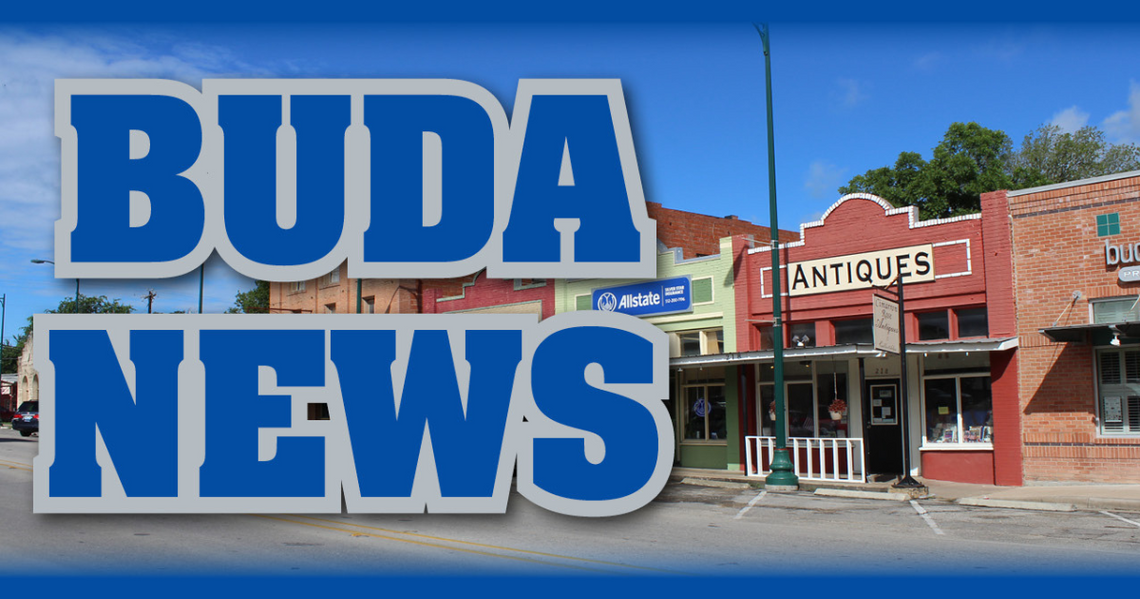BUDA — At the April 15 Buda City Council meeting, city manager Micah Grau gave a presentation on outdoor music venues in downtown Buda.
In response to a request from council member Matt Smith, the presentation went over the issues and roadblocks for Buda to be a live music friendly city, including zoning change processes and the noise ordinance.
According to the presentation, “live music in downtown Buda supports our strategic, comprehensive and downtown master plans. [It] aligns with city goals for cultural and economic development.”
In 2024, the city took a step towards this goal by changing the zoning and the city council “implemented a specific use permit (SUP) process for properties that are in the F4H or F5H zoning in downtown,” said Grau.
The cost and time needed for the SUP required for outdoor live music are prohibitive to many of the downtown businesses, with the cost of the SUP at approximately $3,000 and estimated timeline of three months.
“An unintended consequence of that is we found the cost of implementing a [SUP] can be a burden for some of the businesses downtown,” said Grau. “It doesn’t fit the same process … [SUP is] when construction is happening and they’re making physical changes to the site. In some of the cases for our downtown venues, they are already set up and able to have downtown music; they’re just not allowed to by zoning currently.”
The next roadblock that businesses have encountered in the plan to bring live outdoor music to downtown Buda is the noise ordinance, as each district or zone has a different requirement for the limit of decibels (dB) during certain times of day.
For example, residential districts have a daytime — 7 a.m. to 10 p.m. — limit of 63 dB and a nighttime — 10 p.m. to 7 a.m. — limit of 56 dB, while commercial zones have a daytime limit of 70 dB and a nighttime limit of 63 dB. The presentation went on to give examples of 60-70 dB being “considered normal conversation or background noise in a restaurant or office,” 70-79 dB being “a ringing telephone, noisy restaurant or alarm clock” and 80-89 dB being a “vacuum cleaner [or] busy city streets.”
Grau continued his presentation, stating that compliance with the noise ordinance may not be achievable while also allowing small music venues to have live music.
“So, even though we’re created a process for live outdoor music to happen, we haven’t fully addressed it from the noise ordinance standpoint,” explained Grau. “The standards we have in place right now are quite stringent and would prohibit any live outdoor music in downtown right now — any amplified outdoor music I should say.”
Staff did look at other cities' solutions for a similar issue. The city of Austin, for example, treats it as a “business application” called a Outdoor Music Venue permit (OMV). The OMV permit is good for one year and costs approximately $64. For Austin, they have a decibel limit of 85 dB from 10 a.m. to 10:30 p.m. Sunday through Wednesday, 10 a.m. to 11:00 p.m. Thursday and 10 a.m. to midnight Friday, Saturday and New Year’s Eve. Round Rock has a similar process and their permit has a $50 application fee.
According to the presentation, there are a couple of ways to mitigate these issues. One way is “allow[ing] outdoor music by right in certain zoning (F4H, F5H),” which would create a live music district in downtown, but would also be a potential nuisance to residences around the area. Another way staff suggested to handle the problem is to create an outdoor music venue business permit, much like Austin and Round Rock have done. The other options include: creating an outdoor music SUP process, a combination of previous options or to continue with the current process.
“There’s no avoiding the friction,” said Smith. “There’s going to be friction here and there’s going to be friction for some time as the city grows. So, not only is an objective here to be business friendly, another objective is to make sure that our citizens are heard and their ideas are implemented, as well, into whatever the resulting solution is.”
“I would like to remind folks that what really caught my attention on this issue was the city’s programming itself, the city’s growing events,” continued Smith. “We’re wanting our business community to be involved in that because the more folks that come to our city and spend dollars in our establishments, that’s sales tax generation that our city gets to reap the benefits from … We want folks to come here, we want folks to stay here, we want folks to have a good time here [and] we want folks to spend their dollars here, so we can be more stable as a city overall.”
Council member LaVonia Horne-Williams asked city staff the time difference between doing a permit program and continuing with the SUPs, to which staff responded that reviewing a permit is a matter of hours, rather than months.
Mayor Lee Urbanovsky proposed that the council consider having two different processes: one for existing businesses and another for new businesses.
“It’s okay to look at others and then, pick what’s right for Buda,” concluded council member Evan Ture.
No action was taken, as the workshop was to provide further information for council members.
Buda City Council will meet next May 6.











